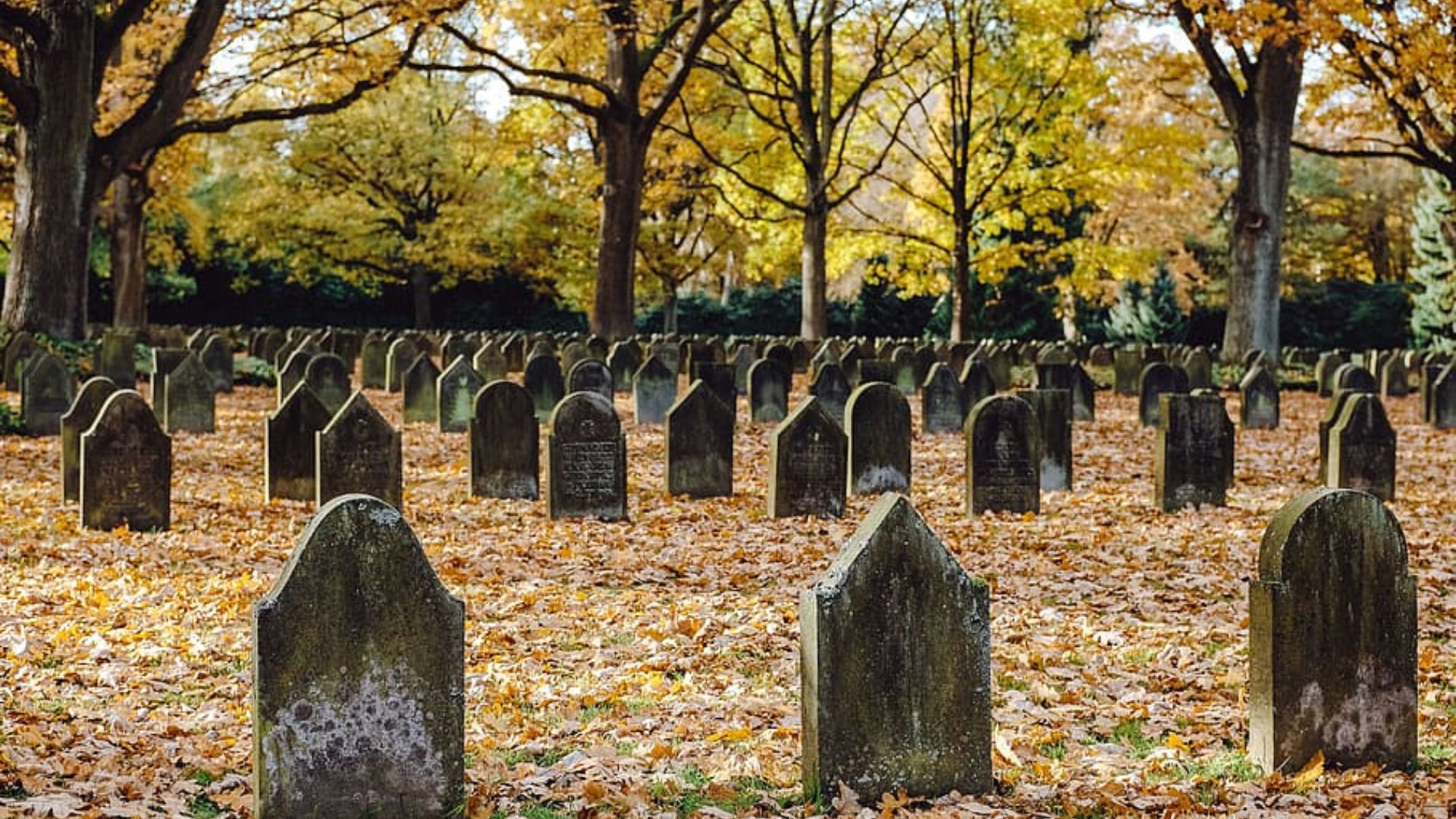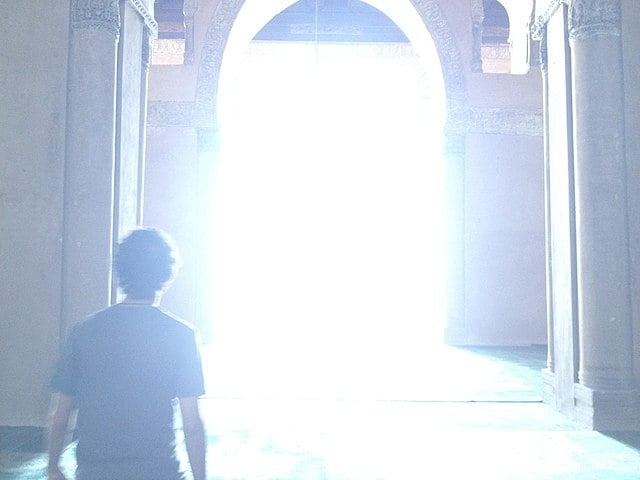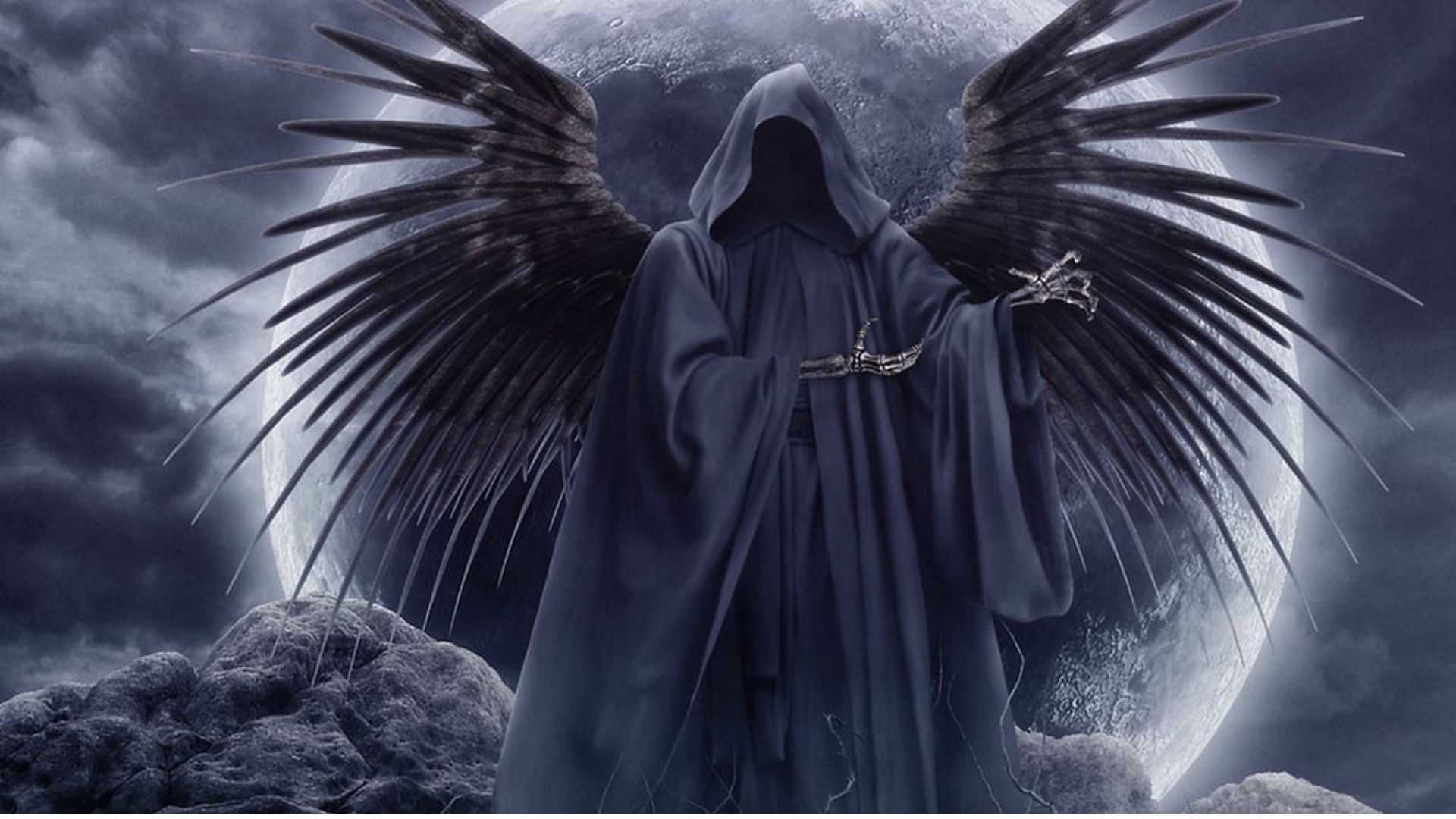In Islam, the concept of angels holds a central place, with each angel assigned specific duties by the divine will. Among these celestial beings is Malak-ul-Maut (ملك الموت; Arabic for Angel of Death), also known as the Angel of Death in Islam.
Angels are special beings, created before humans were created, created from light. They are pure from sin and only live to obey Allah’s command. There are many types of Angels, with different characteristics and different duties. For example, Jibraeel A.S. used to communicate with prophets, share Allah’s message with prophets, and bring down the revelations. similarly, there is an angel assigned with the process of transition after death and separating the soul from the body, who is known as Malak-ul-Maut (or Malik ul Maut, Malakal Maut)
This article will delve into the multifaceted aspects of Malak-ul-Maut, exploring its role, beliefs, and representations within Islamic teachings.
Introduction: The Angel of Transition
Malak-ul-Maut, the Angel of Death, is a significant figure in Islam. As death is an inevitable reality, and Islam focuses a lot on death and the day of judgment, the role of the angel of death in Islam becomes all the more significant.

It is a celestial being tasked with the solemn duty of separating the soul from the body when an individual’s time on earth comes to an end. This divine messenger marks the transition from the earthly realm to the afterlife, making its role both profound and impactful.
The Origins and Significance
The concept of Malak-ul-Maut finds its roots in the Quran, the holy book of Islam. The Quran references this angel in several passages, emphasizing its importance as a servant of Allah. The role of Malak-ul-Maut is to carry out the decree of death, ensuring that every soul experiences the appointed moment of departure. This concept highlights the idea of submission to the divine will, an integral aspect of the Islamic faith.
Depictions and Symbolism
In Islamic art and literature, Malak-ul-Maut is often depicted as a solemn figure, reflecting the angel’s role in facilitating passage to the afterlife. The symbolism associated with this angel serves as a reminder of life’s impermanence and the inevitability of death. These representations encourage believers to reflect on their actions and strive for righteousness.
Role in the Afterlife

Malak-ul-Maut’s role extends beyond the moment of death. According to Islamic teachings, this angel is also responsible for escorting souls to the realm of the afterlife. The Quran describes the angel’s presence during the process of questioning and judgment in the grave, underscoring its role as a witness to an individual’s deeds.
Malak-ul-Maut in Islamic Teachings
Islamic teachings emphasize the fleeting nature of life on earth and the eternal nature of the afterlife. Malak-ul-Maut serves as a constant reminder of this reality, urging believers to prioritize faith, good deeds, and the pursuit of divine pleasure. The angel’s presence in the narratives serves as a call to action, urging individuals to lead a life of purpose and righteousness.
Quranic verses on the Angel of Death in Islam
Angel of Death in Islam is discussed in the following verses of the Quran:
Say, “The angel of death will take you who has been entrusted with you. Then to your Lord you will be returned.” (Quran Surah 32:11)
Other Quran verses mentioning about Angels in general,
They spend their time worshipping and obeying Allah, glorifying Him and praising Him. Allah says: “They (i.e. the angels) glorify His praises night and day, (and) without slackening (to do so).” (Quran Surah 21:20)
The angels are not partners, associates, or rivals with Allah, nor are they His children; but one must still respect and love them. Allah says: “And they say: ‘The Most Beneficent (Allah) has begotten a child [from the angels].’ Far removed is He from every imperfection! They (the angels) are but honored slaves. They speak not until He has spoken, and [then] they act on His Command.” (Quran Surah 21:26-27)
Also Read: Names of Angels in Islam and their Duties
Hadith on Angel of Death in Islam
The following hadith talks about Angel of Death in Islam, and his encounter with Musa A.S. (Moses):
Narrated by Abu Huraira(R): The angel of death was sent to Moses and when he went to him, Moses slapped him severely, spoiling one of his eyes. The angel went back to his Lord, and said, “You sent me to a slave who does not want to die.” Allah restored his eye and said, “Go back and tell him (i.e. Moses) to place his hand over the back of an ox, for he will be allowed to live for a number of years equal to the number of hairs coming under his hand.” (So the angel came to him and told him the same). Then Moses asked, “O my Lord! What will be then?” He said, “Death will be then.” He said, “(Let it be) now.” He asked Allah that He bring him near the Sacred Land at a distance of a stone’s throw. Allah’s Messenger (ﷺ) (p.b.u.h) said, “Were I there I would show you the grave of Moses by the way near the red sand hill.” Sahih al-Bukhari 1339 (Vol. 2, Book 23, Hadith 423)
Angel of death visits 5 times a day Hadith
The Prophet says that the angel of death says; He says that there isn’t a single household in the East or the West that I don’t visit five times a day.
Malakul Maut, the Prophet said that he does not only visit you on the day when you pass away. No, he is quite familiar with you. Malakul Maut says, “Wala ana aa’lamu bi saghirihim wa kabirihim min hum bi anfusihim.” He comes and sees you five times per day. He knows the elders in the family and the younger members of it better than they know themselves, he says.
Malakul Maut knows you by name, so they question the Prophet, “He comes five times. What time does he arrive at our house?”
“Innama yatasaffaha hum fi mawakhitus salaat,” says the Prophet (pbuh). Malakul Maut arrives during prayer times. He pays you a visit then. At six in the morning, what are you doing? You are snoozing. He is present. At noon, what are you doing? What do you have planned for Maghrib? He pays you a visit then.
What is the basis of his opinion of you? how consistently you pray and how much value you place on your relationship with Allah. Malakul Maut is therefore not a stranger when he visits you on the day when you pass away.
He is quite familiar with you. He recalls every occasion when he visited your home and you were abusing your family members or playing video games.
Make your death a day he looks forward to seeing you on because he knows you are one of the mu’mineen, not a day he hates to see you on because he witnessed how harsh, careless, and irresponsible you were.
He comes to you five times a day when you are praying.
How you receive him in those situations is the question.
Understanding Death as a Transition
The concept of Malak-ul-Maut aligns with the Islamic perspective on death as a transition rather than an endpoint. Believers are encouraged to view death as a step toward reuniting with Allah and receiving the rewards of their faith and deeds. This outlook fosters hope, comfort, and the resolve to live a life in accordance with the teachings of Islam.
Addressing Misconceptions
Misconceptions about Malak-ul-Maut and its role abound. Some mistakenly associate the angel with a negative or malevolent force. However, Islamic teachings clarify that the angel’s function is to execute the divine command and is not driven by personal motives or intentions. Clearing up such misconceptions is essential for a nuanced understanding of the angel’s significance.
Embracing Mortality
The concept of Malak-ul-Maut encourages believers to embrace their mortality and make the most of their time on earth. Rather than evoking fear, the thought of the Angel of Death serves as a reminder to lead a life marked by compassion, kindness, and humility. This understanding aligns with the overarching message of Islam: to seek closeness to Allah through virtuous actions.
FAQs about the Angel of Death in Islam
Can you see the angel of death in Islam?
Who is the angel of death in the Bible?
What is the significance of Malak-ul-Maut in Islam?
Malak-ul-Maut holds the pivotal role of separating the soul from the body when an individual's time on earth ends. It marks the transition from life to the afterlife, emphasizing submission to Allah's will.
Does Malak-ul-Maut play a role beyond death?
Yes, according to Islamic teachings, Malak-ul-Maut is responsible for escorting souls to the afterlife and being present during the questioning and judgment in the grave.
Is Malak-ul-Maut associated with negativity in Islam?
No, Islamic teachings clarify that Malak-ul-Maut follows Allah's command and isn't driven by personal motives. It's a messenger fulfilling a divine duty.
How does the concept of Malak-ul-Maut influence believers' perspectives on death?
The concept encourages believers to view death as a transition toward reuniting with Allah. It fosters hope, comfort, and a purpose-driven life.
Conclusion: A Guiding Angel

Malak-ul-Maut, the Angel of Death in Islam, serves as a guiding presence that reminds believers of life’s fleeting nature and the importance of leading a life of virtue. With its role rooted in divine command and wisdom, this celestial messenger embodies the essence of Islamic teachings. Embracing the concept of Malak-ul-Maut encourages believers to live a life marked by faith, righteousness, and a deep understanding of their spiritual journey.
This was all about the Angel of Death in Islam. Read more Islamic Blogs or Follow us on social media for daily Islamic reminders.






